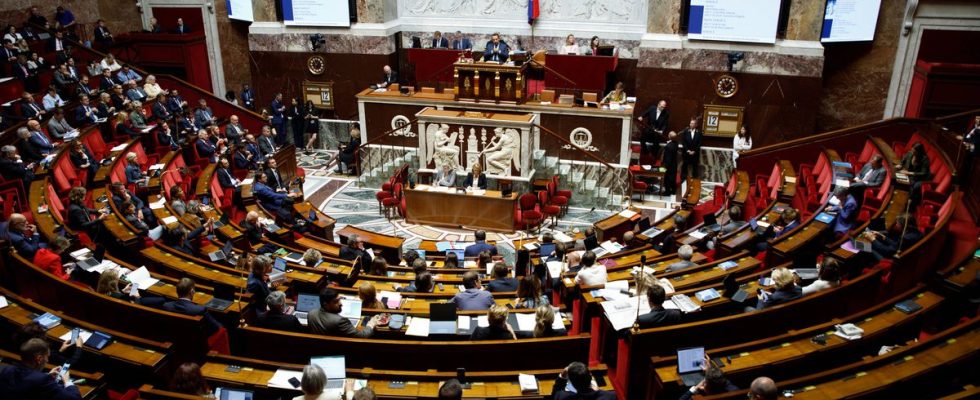Parliamentary victory for the government. Its bill for the regulation of the digital space (SREN), which promises to better fight against cyberharassment, Internet scams, and the accessibility of pornographic sites to minors, was largely approved in the National Assembly on Tuesday .
The text had raised serious concerns about the protection of public freedoms, on the side of the RN, LFI but also certain parliamentarians from the majority. At the end of the debates, the government received the support of LR, the PS, most of the LIOT elected officials, and benefited from the abstention of the RN, EELV and the PCF. The text was voted on by 360 votes to 77, mainly those of LFI. It had already been unanimously approved in the Senate on July 5. The joint committee during which senators and deputies will try to agree on a common version could be held in December.
Distrust of the RN and LFI
“The essentials have been preserved for us,” greeted PS MP Hervé Saulignac on Tuesday, welcoming “the desire for dialogue” of the Minister Delegate in charge of digital affairs, Jean-Noël Barrot. RN deputy Aurélien Lopez-Liguori was more severe in his explanations of vote, considering that the initial text was “shameful in terms of public freedoms, shameful in terms of the defense of our digital sovereignty”. But he welcomed the “decisive victories” obtained by the RN.
Only La France insoumise remained anchored to a resolute opposition, believing through the voice of MP Ségolène Amiot that the government was installing “the practical tools of mass social control”. LFI should refer the matter to the Constitutional Council after adoption in CMP.
Blocking pornographic sites
MEPs rejected a measure aimed at imposing fixed fines for “racist” or “sexist” public insults and defamation in “the digital space”. Based on European regulations on digital services and digital markets (DSA and DMA), the SREN bill has as its “common thread” the “protection of citizens, children and businesses”, explained Jean-Noël Barrot by opening the debates.
In particular, it gives the possibility to an administrative authority to block pornographic sites that do not prevent minors from accessing their content; it gives moderation duties to large network platforms, under penalty of financial sanctions; it creates a “penalty of banishment from social networks” for cyberstalkers, including for “provocations” to commit certain crimes.
The text also proposes to regulate the “cloud” to allow more competition among IT infrastructure and service providers, or to regulate the experimental launch of “Monetizable digital object games” (Jonum), at the border between video games and gambling. This measure is one of the most criticized in the text, which several deputies hope to see censored by the Constitutional Council, pointing to a break in equality with online casinos.

